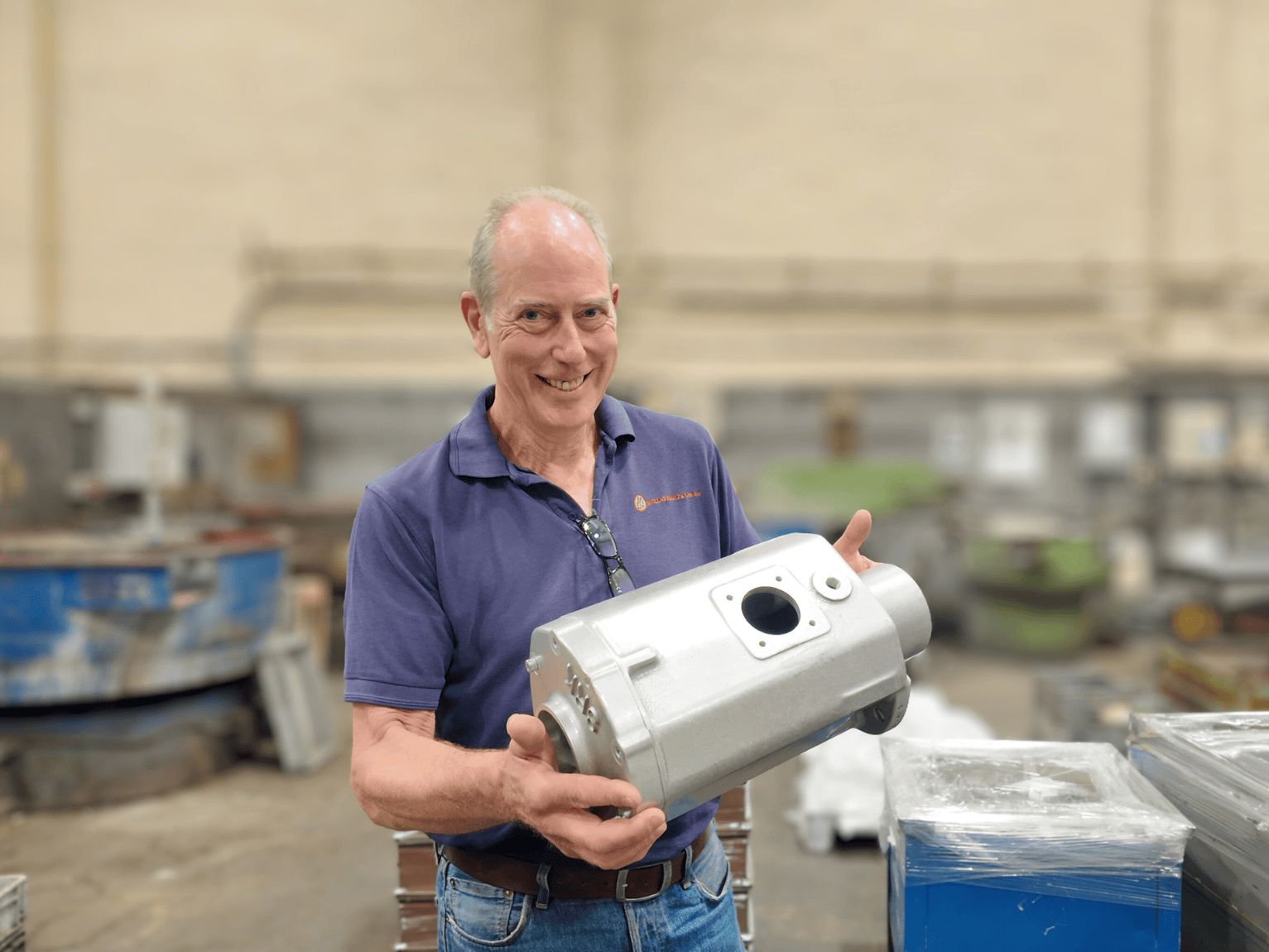'Why Manufacturing Remains Undervalued' says vibratory deburring specialist

In 2025, UK manufacturing remains a vastly undervalued engine of national prosperity. While official statistics continue to cite its direct contribution to GDP at around 8%, more recent data and 2025 economic insight reveal a much larger, more integrated footprint—one that underpins millions of jobs, fosters high-value innovation, and sustains entire communities.
For those on the ground, the numbers only tell part of the story. Chris Arrowsmith, Managing Director of Midland Deburr & Finish in Lye, near Stourbridge, sees the gap between perception and reality every day in its vibratory deburring services and metal degreasing; in both vapour degreasing and solvent degreasing. “From the workshop floor to the shop window, manufacturing touches every part of our communities,” he says. “The headline GDP figures simply don’t show the real value—how thousands of suppliers, subcontractors, families, and local businesses depend on our work. When R&D, exports, wages, and ripple-on spending are taken into account, the sector’s true impact is what keeps the Midlands—and the UK—moving forward.”
The Oxford Economics and the Manufacturing Technologies Association (MTA) report in 2024 continues to reshape how the sector should be viewed. It estimated that the true impact of manufacturing is closer to £518 billion, or nearly 23% of total UK GDP, when factoring in direct, indirect, and induced effects. That’s a far cry from how it’s typically portrayed in policy circles and public discourse. In truth, manufacturing supports over 7.3 million jobs across the country, and it’s not just about traditional factory work. From R&D labs to advanced materials engineering, the industry contributes to nearly 35% of all UK exports, while also paying a median wage 11% higher than the national average.
Yet, despite these facts, the sector is still not receiving the recognition or support it needs to thrive—particularly at a time when it is being hit from multiple directions. In 2025, manufacturers are grappling with a volatile global trading environment, the ongoing consequences of Brexit, escalating energy costs, rising business taxes, and a labour market struggling to keep pace with demand for skilled engineers and technicians. Official data showed a 1.0% drop in output this past May alone, capping off a difficult spring that saw consecutive monthly declines, particularly in key areas like transport equipment and pharmaceuticals.
For those on the ground, the numbers only tell part of the story. Chris Arrowsmith, Managing Director of Midland Deburr & Finish in Lye, near Stourbridge, sees the gap between perception and reality every day in its vibratory deburring services and metal degreasing; in both vapour degreasing and solvent degreasing. “From the workshop floor to the shop window, manufacturing touches every part of our communities,” he says. “The headline GDP figures simply don’t show the real value—how thousands of suppliers, subcontractors, families, and local businesses depend on our work. When R&D, exports, wages, and ripple-on spending are taken into account, the sector’s true impact is what keeps the Midlands—and the UK—moving forward.”
Arrowsmith's business, which specialises in surface finishing and precision deburring, is part of the invisible backbone of British industry. Without companies like his, many advanced engineering projects—from aerospace components to medical devices—couldn’t meet the standards required to reach global markets. “It’s frustrating,” he adds, “because we’re delivering quality, exports, and skilled jobs—and yet we’re still treated as an afterthought in policy decisions.”
This frustration is shared across the sector. While the government’s Advanced Manufacturing Plan and the accompanying £4.5 billion in support have been welcomed, industry leaders argue that far more needs to be done. That includes investing in regional infrastructure, scaling up successful programmes like the High Value Manufacturing Catapult, and urgently addressing the skills gap that threatens future growth. In addition, many manufacturers feel that the UK lacks a coherent, long-term industrial strategy—one that brings together business leaders, educators, and policymakers to ensure a stable, competitive future for British industry.
The stakes are high. At a time when global uncertainties are mounting and domestic productivity remains sluggish, manufacturing offers a route not just to economic recovery, but to sustainable, inclusive growth. It is already responsible for nearly half of all private sector R&D investment in the UK, driving innovation in electrification, lightweight materials, low-carbon technologies, and clean energy. But without a fundamental shift in how the sector is perceived and supported, much of that potential risks being left unrealised.
Stephen Phipson, CEO of Make UK, summed it up aptly when he said: “Just as the first industrial revolution provided a step change, the accelerating pace of technological change of the fourth industrial revolution gives us a generational opportunity to do the same now.”
For manufacturers like Arrowsmith, the message is simple: they are not looking for handouts—they're asking to be seen. Recognised not only for the parts they produce, but for the vital role they play in the UK’s economic ecosystem. Because the reality is clear: if the UK is to build a more resilient, innovative and equitable economy, it must start by valuing the people—and the places—that make things.
Quick Contact Form
